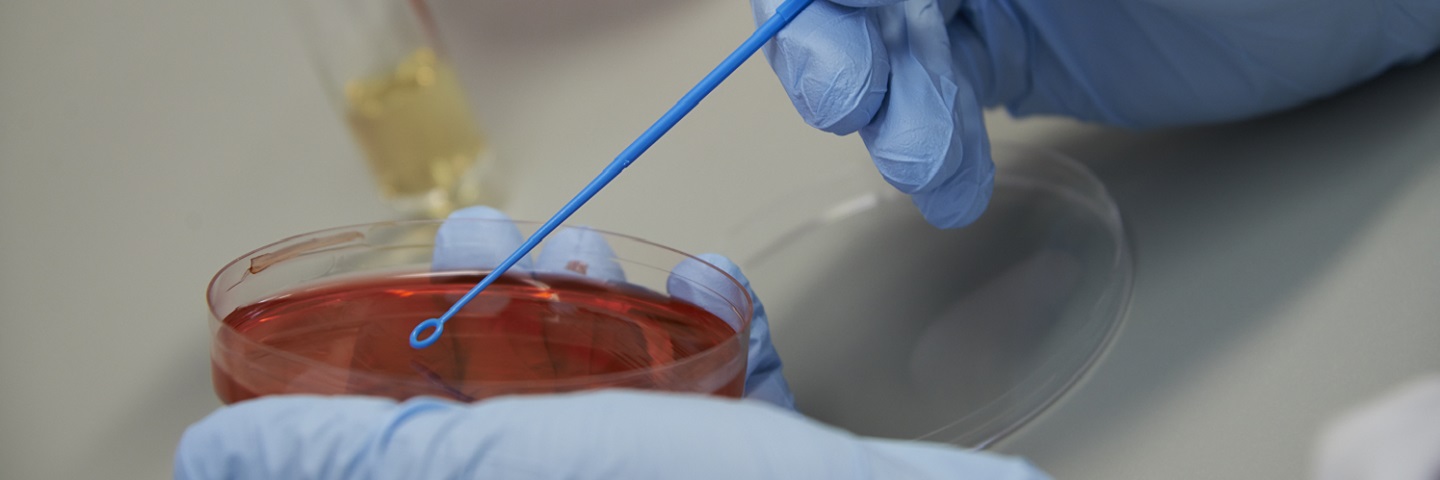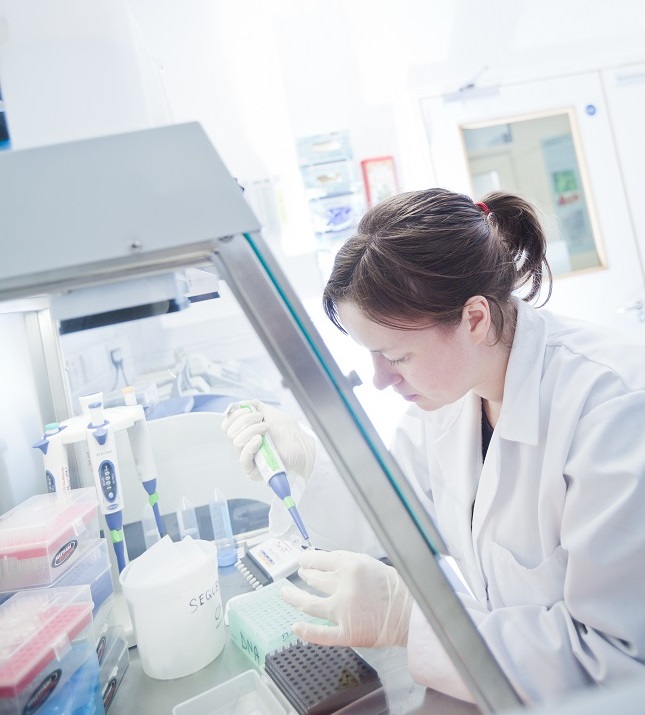
Visit our other sites
-
Fapas - Proficiency Testing
Globally recognised provider of proficiency tests, running over 400 tests annually across an extensive range of matrices and analytes
-
Great Crested Newts Testing
A single sample taken by an ecologist at any time during the newt breeding season can determine their presence or absence, saving you time and money
We are turning scientific excellence into economic impact and delivering results through engaging with high-potential EU projects.

Fera is applying its internationally recognised scientific expertise – supported by extensive facilities – to tackle industry challenges in food authenticity and food fraud.
We combine policy and regulatory know how with extensive testing and analysis capabilities to provide expertise and value across the whole food chain – which is demonstrated in our work across a number of EU and Defra projects. This work includes tackling issues surrounding food integrity, the supply chain, the origin of food and food fraud, and demonstrates our ability to apply world class scientific expertise and innovation to real world scenarios.
Some of the EU & Defra projects Fera is working on include:

DROPSA: THE IMPACT OF FRUIT FLIES ON EU SOFT FRUIT PRODUCTION
DROPSA was a 4-year project involving 26 partners from across the world which focused on new and emerging threats due to the Drosophila suzukii fruit fly, and a number of pathogens which damage soft fruit crops. The project aimed to develop effective, innovative, practical and integrated solutions for controlling these pests and diseases.
The Drosophila suzukii fruit fly is a major pest species as it infests fruit early in the ripening stage. Fruit crops account for 17% of the value of the EU’s agricultural production and it is estimated that insect pests destroy approximately 14% of all potential food production globally. Drosophila suzukii and other pathogens are a major concern and challenge to the soft fruit industry because their eradication or containment is not possible.
Through the DROPSA project, Fera is testing new chemicals and biological control agents in the laboratory that have the potential to be developed for use in the field. We have also provided alternative recommendations to identify and control fruit fly populations - potentially without the use of synthetic insecticides and have developed alternative pest control strategies based on disrupting the behaviour and physiology of Drosophila suzukii.
Find out about this and the other key outputs and deliverables of the project below.
FOOD INTEGRITY PROJECT: INTELLIGENT QUALITY ASSURANCE
We used our expertise to identify the root cause of inconsistent and detrimental quality issues which caused discolouration of a meat product.
The investigations of the client, ABP Food Group, were unable to identify the root cause of a meat discolouration, so we combined existing theory with our original thinking and experimentation to test novel strategies to help determine the cause. We interpreted analytical findings to help understand and solve the challenge, which allowed ABP Food Group to take the right steps to rectify the issue.
To find out more about how we approached this project, please download our ebook below:


FOOD INTEGRITY PROJECT: FOOD FRAUD RISK MITIGATION
We help deliver technology-driven food transparency and raise the bar on standards and regulations in place to mitigate the risk of food fraud. We aim to give the food industry protection based upon sound regulations and inspection methods, as well as help to give consumers confidence around the food that they eat.
Globalised food supply chains give consumers access to a huge variety of foods, though buyers are becoming increasingly aware of, and considerate of the sourcing and authenticity of the products they choose to buy. Economically motivated food fraud is now a major concern for both the food industry and regulators across the globe.
Our food safety specialists are continually investigating new ways to provide early warnings of emerging risks and mitigate the risk of food fraud occurring at any point through the food chain. Much of this innovative work is based on non-targeted chemical and biochemical profiling of components in food samples. We use advanced techniques such as NMR spectroscopy, high-resolution Mass Spectrometry and Next Generation Sequencing coupled with advanced ‘big data’ analysis.
We are currently developing an Early Warning System (EWS) prototype, a tool demonstrating how technology is bringing to the market cost-effective proactive methods to detecting fraud. This will look to alert you to developing issues from across the world – giving you a chance to introduce mitigation procedures before a crisis develops.
DEVELOPMENT OF A MULTI-SPECIES PROTEOMIC SCREENING TOOL FOR MEAT LABELLING VERIFICATION
The project aims to develop a ‘fit for purpose’ optimised and validated proteomic Mass Spectrometry (MS) method for routine qualitative meat species determination to verify compliance with food composition and labelling law. This follows the horse meat contamination incident of 2013 which damaged public trust in the integrity of the food chain.
Working closely with Defra and to support Defra’s vision for a world leading food and drink industry with the highest standards of food safety and quality, this project, using cutting edge technology, will develop ‘fit for purpose’ methods to detect food fraud and help enforcers verify compliance with food labelling law.
Outputs from the project will include a standard procedure for the extraction of proteins from spiked and commercially produced meat products and for multi meat identification by LC-MS to identify meat muscle species. An open access database of peptide sequences specific for different species to be used for LC-MS meat speciation analysis will also be made available, and a workflow for the development of routine LC-MS screening methods for meat speciation analysis.


VITISMART
VitiSmart is a 3-year collaborative EU project with interdisciplinary research activities, which aims to increase both quality and output for winemakers. The project is structured with a well-balanced division between research and innovation, basic and applied research, field data collection and demonstration, socioeconomic, technology transfer and dissemination actions, as well as management.
It will contribute to the achievement of sustainable development goals by integrating economic, social and environmental dimensions and addressing mutually food security and climate challenges. It is composed of three main themes to support the wine-making industry: Sustainably increasing agricultural quality, productivity and incomes; Adapting and building resilience to climate change; and reducing chemical inputs while maintaining quality using biocontrol methods.The project aims to produce a resilient viticultural system able to speedily recover from biotic and abiotic stresses. This will be achieved by combining resilient cultivars with beneficial microorganisms to acquire a natural-cross tolerance while maintaining yield.
Download our VitiSmart ebook to learn more about the project.
VALIDATING A METHOD TO DETERMINE THE SPECIES ORIGIN OF GELATINE
This Defra-funded project aims to benefit consumers by providing a fast turnaround method to determine the origin of gelatine in foods. As gelatine is a highly processed product (and a high level of processing disrupts DNA and proteins), it is difficult to determine the species of origin as methods such as DNA analyses and protein analyses by immunoassays.
Fera is using gelatine peptides from a proprietary database to develop and validate a faster method than currently exists to determine the species origin and provide a high throughput, fast-turnaround technology. The method uses instruments which are widely available globally and the aim is to serve consumers with high volume fast turnaround tests to verify the authenticity of food products.


Copyright © 2025 Fera Science Limited (“Fera”). All rights reserved.
For further information about how Fera uses any personal data collected from you, please see our Privacy Notice at www.fera.co.uk/privacy-policy.


